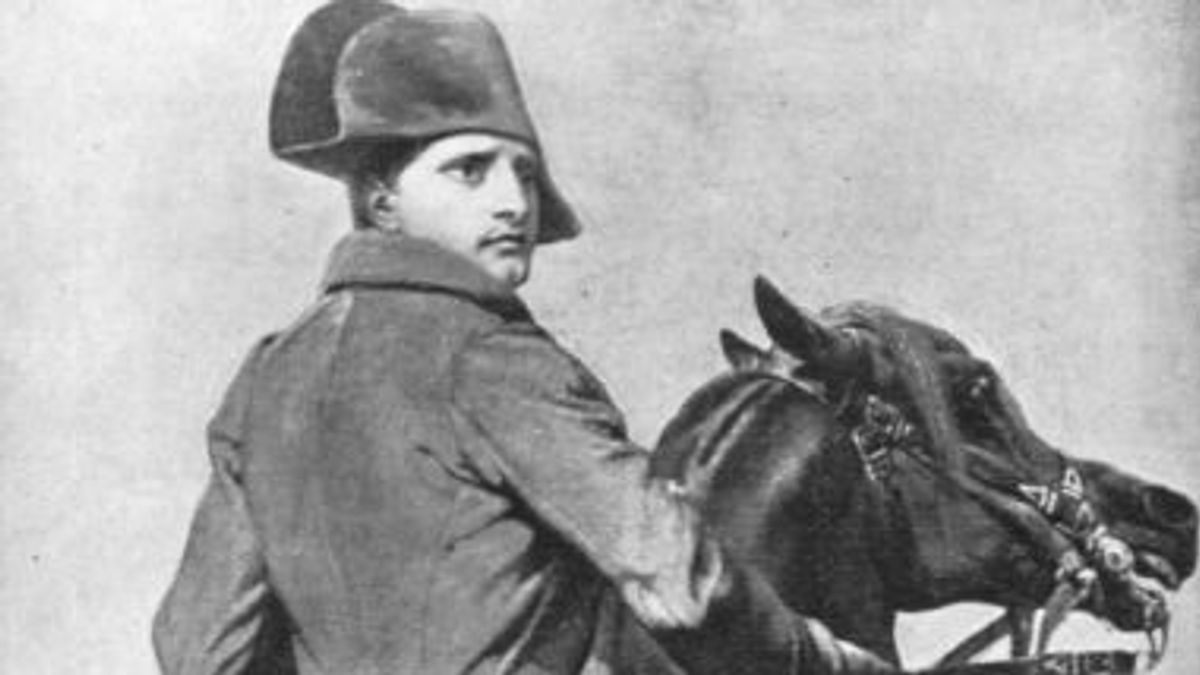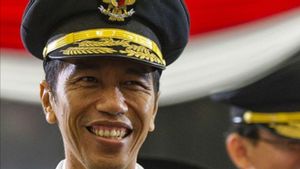JAKARTA - The events of the French revolution which erupted in 1789 succeeded in overthrowing the absolute monarchy regime that had ruled for centuries. Post-revolutionary, one of the French leaders Napoleon Bonaparte had the ambition to overthrow other kingdoms in mainland Europe. The Bonaparte era was marked by war.
Summarizing the 26 July 2010 edition of Tempo, Napoleon Bonaparte, a man of royal descent who was born in the city of Ajaccio, Corsica on August 15, 1769, is one of the great figures in French and European history. Bonaparte's military career was brilliant. At the age of 20, he was already a second artillery lieutenant and seized the opportunity in political chaos to gain power in France, until he became Emperor of France from 1804 to 1814.
When he became emperor, Bonaparte continued to develop his territory. By 1810, almost all of Europe was under his control. Some argued that Bonaparte had the ambition to spread the idea of liberal democracy throughout Europe. But when Bonaparte was about to invade Russia, his attack failed because his self-confidence was too high.
The opportunity was immediately seized by the European royal-kingdom coalition to ally with Bonaparte. The coalition also succeeded in overthrowing Bonaparte in 1814. Subsequently, Bonaparte was exiled to Elba Island.

100 day ambition
On February 26, 1815, Bonaparte fled exile on the Island of Elba. Then, on this day, March 20, two centuries ago or more precisely in 1815, Bonaparte returned to Paris. According to the chronicler of Napoleon Bonaparte, Richard Moore, through his website "Napoleonic Guide", two months after returning to France, Bonaparte managed to gather about 280 thousand troops.
The Bonaparte movement from exile until the war began is known as the "100 Days" event. The troops that Bonaparte gathered were preparations for his final war in Waterloo which became known as the Waterloo War.
Upon hearing the news that Bonaparte had fled, the coalition of European kingdoms consisting of Britain, the Netherlands, Russia, Prussia, and Austria heated up. They claimed Bonaparte broke the law and immediately formed a joint force called the Seventh Coalition led by the Duke of Wellington of England and Gebhard von Blucher of Prussia.
The troops moved south to Waterloo which was then still part of the Kingdom of the Netherlands, near Belgium. The troops led by the Duke of Wellington from England numbered 110 thousand, while 120 thousand from Prussia were ready to depart. The troops made Bonaparte feel threatened, so he decided to attack them first before the two armies joined.
Richard Moore said, Bonaparte's troops were moving with astonishing speed. They attacked Belgium with 125,000 troops in an attempt to prevent Wellington and Prussian forces from joining. Together with his two main generals, Ney and Grouchy, Bonaparte moved ahead of the enemy to Mons, then to Charleroi, southern Belgium, until it culminated in the battle of Waterloo.
However, Bonaparte's attempts to penetrate British troop defenses were unsuccessful. At the same time, the Prussian troops also arrived. They joined forces and attacked Bonaparte's forces until they withdrew irregularly. Historically, Bonaparte's army lost the battle of Waterloo.
Although Bonaparte did a lot of work on the battlefield, he in fact created a lot of state governance. It inherited the metric system we use today. Napoleon's greatest legacy for public life was the "Napoleonic Code", which contained the order of civilian life.
The core of the legislation in it regulates clearly and systematically the rights of private and ownership. This formula was first applied in France, then it was also used in all the places that had been conquered by Bonaparte. This set of rules, among other things, supported equal civil rights, thereby hastening the end of feudalism in Europe.
The English, Chinese, Japanese, Arabic, and French versions are automatically generated by the AI. So there may still be inaccuracies in translating, please always see Indonesian as our main language. (system supported by DigitalSiber.id)










